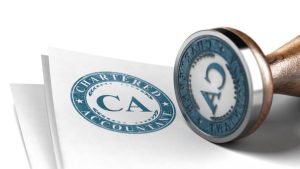Become a Chartered Accountant (CAs) holds greater value than Friedensreich Hundertwasser’s 1983 artwork “For the Love of Money,” as rephrased by Gwyneth Williamson.

CAs possess respected and sought-after qualifications with international recognition that facilitate seamless transitions across countries and professional domains. The only qualification more globally recognised is a STEM (Science, Technology, Engineering, Maths) degree, yet CAs enjoy a uniquely advantageous position. They are indispensable professionals known for their pivotal roles in both public and private sectors.
What are the Main Types of Chartered Accountants?
Chartered Accountants include Public Practice Accountants, who provide audit and advisory services; Corporate Accountants, who manage finances within companies; Forensic Accountants, who investigate financial discrepancies for legal purposes; and Tax Accountants, who handle tax preparation and compliance. Each specialisation plays a crucial role in financial management and regulatory compliance.
Public Practice Accountants
Public Practice Accountants are professionals who work within accounting firms, providing a range of services including audit, financial reporting, and advisory services to various clients.
Role and Key Responsibilities:
Public-practice accountants operate within accounting firms that cater to a diverse clientele, offering services such as audit, financial reporting, and advisory services.
Corporate Accountants
Corporate Accountants are professionals employed within a company’s internal finance department or finance team. They are responsible for tasks such as analysing financial data, preparing budgets, and ensuring adherence to financial regulations within the organisation.
Role and Key Responsibilities:
Conversely, corporate accountants are employees of a company, integral to its operations, tasked with analysing financial data, preparing budgets, and ensuring compliance with financial regulations.
Forensic Accountants
Forensic Accountants are specialists who investigate financial discrepancies and provide expert analysis for legal proceedings, such as divorce cases, ensuring accuracy in financial records and testimony.
Role and Key Responsibilities:
A forensic accountant is a specialist who investigates discrepancies or issues in the financial records of individuals or companies, often to resolve disputes or provide evidence for legal proceedings. For instance, in divorce cases, forensic accountants scrutinise financial documents and may testify to verify the accuracy of figures presented by a businessman.
Tax Accountants
Tax Accountants are professionals specialised in preparing tax returns, providing advice on cash-flow forecasting, ensuring compliance with tax regulations, and informing clients about potential tax liabilities.
Role and Key Responsibilities:
A tax accountant prepares tax returns, offers guidance on cash-flow forecasting, advises on tax compliance, and informs about potential tax liabilities.
What does a Chartered Accountant do?

Chartered Accountants play a pivotal role in financial management by preparing precise financial statements, conducting audits for compliance, providing strategic financial advice, managing budgets, handling tax planning, and implementing risk management strategies to ensure organisational stability and success.
Preparing Financial Statements and Reports
Chartered Accountants meticulously prepare financial statements and reports that provide a precise and comprehensive depiction of an organisation’s financial position. These documents are crafted with careful attention to detail, ensuring accuracy and reliability in conveying the financial health and performance of the entity.
Conducting Audits and Ensuring Compliance
Chartered Accountants conduct audits to verify and uphold the accuracy of financial records, ensuring compliance with regulatory standards and providing stakeholders with trustworthy financial information.
Providing Financial Advice and Strategy
Chartered Accountants offer businesses financial planning services to assist in strategy development and optimise capital use, enabling them to achieve financial objectives and enhance performance.
Managing Budgets and Financial Plans
Chartered Accountants create and manage budgets, monitor financial performance, and adjust strategies as needed to help businesses achieve their financial goals and enhance overall performance.
Handling Tax Planning and Compliance
Chartered Accountants ensure organisations comply with applicable tax rules and legislation, offering strategies to achieve optimal tax efficiency.
Conducting Risk Management and Internal Controls
Chartered Accountants assess investment risks and implement financial controls to mitigate them, thereby ensuring the accuracy of financial reports.
Average Salary Range of a Chartered Accountant
Chartered Accountants’ salaries vary by experience, location, and sector. Entry-level positions start lower and increase with experience. Mid-level roles offer higher earnings, while senior and specialist positions command the highest salaries, reflecting career progression and industry demand.
Salary Ranges Based on Experience and Location
Salaries for chartered accountant (CA) roles in the UK vary significantly based on experience, location, and sector. Entry-level CAs typically earn between £30,000 and £45,000 per year, while mid-level CAs can expect to earn from £45,000 to £70,000 annually. Senior CAs or those in specialist roles often command salaries ranging from £70,000 to £120,000 or more per year. In the USA, salaries for CAs also vary depending on similar factors.
Entry-level positions generally offer annual salaries between $50,000 and $70,000, mid-level CAs can earn from $70,000 to $100,000 annually, and senior CAs or specialists may earn $100,000 to $150,000 or more per year. These salary ranges reflect the diverse compensation opportunities available based on professional experience, geographic location, and industry specialisation.
Comparison of Salaries in Different Regions and Sectors
There may also be geographic variation in salary, with higher remuneration likely found in major financial centres such as London, New York, and Hong Kong. Additionally, depending on the type of activity, chartered accountants can be well rewarded, especially if they pursue careers in finance, consulting, or corporate accounting sectors, compared with those working in public practice or the non-profit sector.
Factors That Influencing Chartered Accountant Salaries
Several factors can influence Chartered Accountant salaries:
- Experience: Experienced CAs typically earn higher salaries due to their advanced skills and greater responsibilities.
- Education and Certifications: Higher levels of education or professional certifications can enhance a CA’s potential for earning a higher salary.
- Sector: The sector in which a CA works significantly influences their salary. Industries like finance and consultancy typically offer the highest compensation.
Essential Skills of a Chartered Accountant

To become a successful Chartered Accountant, you need to bring together technical and soft skills.
Technical Skills
- Proficiency in Accounting Software: CAs must have proficiency in the use of different accounting software that are commonly used by enterprises to create databases of financial data and perform analyses.
- Knowledge of Financial Regulations and Standards: This refers to the level of knowledge about financial regulations and accounting standards including taxation codes, for example.
Soft Skills
- Analytical Thinking: Analytical skills are vital for interpreting financial data and making well-informed decisions.
- Attention to Detail: Excellent attention to detail is essential for preparing financial statements and reports that are reliably accurate.
- Communication: Strong communication skills are crucial for interacting effectively with clients, colleagues, and stakeholders.
- Problem-Solving: Effective problem-solving skills enable CAs to tackle financial challenges and develop strategic solutions.
Career Development Tips for Chartered Accountants
- Staying Updated with Regulations: Keeping abreast of evolving accounting rules and regulations requires ongoing learning, as the discipline constantly evolves.
- Joining a Professional Organisation/Society: Membership in a professional organisation or society provides valuable networking opportunities and access to resources, helping you stay current in your industry.
- Utilising Available Resources: Leveraging available resources is another effective way to expand your skillset.
- Internships and Entry-Level Roles: Practical experience gained through internships or entry-level positions allows individuals to discover new abilities and build a solid professional track record.
- Continuous Improvement of Technical and Soft Skills: Regularly practising and refining both technical and soft skills is key to CA’s success. Focusing on continuous improvement ensures advancement in their careers.
Qualifications and Requirements for Chartered Accountants
To become a Chartered Accountant, specific educational and professional requirements must be met:
Educational Requirements
- Bachelor’s Degree in Accounting, Finance, or Related Field: A degree in accounting, finance, or a related field is essential, with at least a bachelor’s degree typically required for most positions.
- Relevant Coursework in Accounting Principles and Finance: Students should complete coursework covering financial accounting, auditing, and taxation to gain relevant knowledge in these areas.
Certification Requirements
- Chartered Accountant Certification from a Recognised Body (ICAEW, ACCA): Certification from a recognised professional body such as the Institute of Chartered Accountants in England and Wales (ICAEW) or the Association of Chartered Certified Accountants (ACCA) ensures adherence to professional standards and demonstrates competence.
- Practical Experience in Accounting: Acquiring practical experience in accounting through internships or entry-level roles complements academic qualifications and enhances professional skills.
Experience Requirements
- Internships, Articleships, and Entry-Level Positions: Gaining practical experience through internships, articleships, and entry-level roles in accounting firms or corporate finance departments is essential for skill development and establishing a professional reputation.
- Professional Development (CPD): Engaging in ongoing CPD activities ensures CAs stay updated with industry trends and regulations, enhancing their professional expertise and maintaining their qualifications.
How to Become a Chartered Accountant?
Becoming a Chartered Accountant involves earning a bachelor’s degree in accounting or finance, gaining practical experience through internships or entry-level roles, obtaining certification from bodies like ICAEW or ACCA, engaging in continuous professional development, and networking within the industry. These steps ensure competence, keep knowledge current, and foster career advancement in accounting.
Completing Relevant Education
- Bachelor’s Degree in Accounting, Finance, or Related Field: The initial step is to attain a bachelor’s degree in accounting, finance, or a related field.
- Complete the Required Courses of Certifying Bodies: This involves completing courses in financial accounting, auditing, taxation, and other relevant subjects as mandated by certifying bodies.
Gaining Practical Experience
- Internships and Entry-Level Positions: Engaging in internships and entry-level positions within public accounting firms or corporate finance and accounting departments provides valuable practical experience.
- Articleship with Certified Firm: Undertaking an articleship with a certified firm offers firsthand exposure to professional work and invaluable mentorship, essential for professional growth and decision-making.
Obtaining Certification
- Passing Required Exams from Bodies Like ICAEW, ACCA, or ICAS: Successfully passing the exams mandated by certification bodies is crucial to achieving Chartered Accountant certification.
- Professional Membership: Obtaining membership with professional bodies such as ICAEW or ACCA further solidifies one’s standing as a certified Chartered Accountant, providing ongoing support and opportunities for career development.
Continuing Professional Development
- Workshops, Seminars, and Webinars: Participate in continuous professional development through various training opportunities to stay updated with industry trends.
- Advanced Training and Specialisations: Pursue advanced training and specialisations to enhance and expand your expertise in specific areas of accounting and finance.
Networking
- Professional Organisations: Join professional bodies such as ICAEW or ACCA to network with peers and remain abreast of industry trends.
- Participate in Industry Events and Conferences: Attend industry events and conferences to expand your professional network and gain insights from industry experts.
Get Qualified as a Chartered Accountant (CTA)
Online Accounting Fundamentals, Certificate in Tax Accounting
Frequently Asked Questions (FAQ)
- Why should you be a Chartered Accountant?
Being a Chartered Accountant, or CA, offers a challenging yet rewarding career path. CAs work across various sectors, providing crucial insights into organisations’ financial health and influencing business strategies and models. Job security, competitive remuneration and benefits, continuous professional development, and career growth opportunities are among the perks of being a CA. Additionally, CAs are esteemed as dependable consultants within their professional networks.
- Is Becoming a Chartered Accountant a Good Career Choice for You?
Becoming a Chartered Accountant can be an excellent career choice if you possess strong numerical reasoning skills and a passion for problem-solving and improving processes. This profession is ideal if you excel in meticulous attention to detail, enjoy number-crunching, and have a keen interest in business and finance. Commitment to continuous professional development is essential to stay current with the latest industry changes and advancements.
- How much does a Chartered Accountant Earn?
Chartered Accountant (CA) salaries vary based on experience, location, and sector. Entry-level CAs in the UK earn between £30,000 and £45,000 per year (£30,000 = US$38,000; £45,000 = US$58,000), while in the US, they earn between $50,000 (£36,000) and $70,000 (£52,000) annually. Mid-level CAs in the UK earn between £45,000 and £70,000 per year (£45,000 = US$58,000; £70,000 = US$90,000), and in the US, they earn between $70,000 (£52,000) and $100,000 (£74,000) annually. Senior CAs, including specialists, earn £70,000 to £120,000 or more per year in the UK (£70,000 = US$90,000; £120,000 = US$155,000+), and $100,000 (£74,000) to $150,000 (£111,000+) or more per year in the US.
- Which Qualifications Can Help with a Career as a Chartered Accountant?
While there are various education paths to becoming an accountant, obtaining a bachelor’s degree in accounting, finance, or a related field is standard practice. A blend of coursework and training modules offers foundational knowledge and helps develop essential skills. Passing examinations to earn certification from a professional body such as ICAEW, ACCA, or ICAS demonstrates competency and indicates progress toward professional credentials. They say that experience is the best teacher, and this holds true in accounting. For those considering this profession, participating in an internship during their studies or securing an entry-level position upon graduation provides invaluable experience to develop skills and establish a professional reputation.
- Do I Need to Be Experienced to Get Started?
You do not need prior experience to begin the journey towards becoming a Chartered Accountant. Many aspiring CAs start with a bachelor’s degree and gain practical experience through internships or entry-level positions. Essential starting points include enthusiasm, a willingness to learn, and a passion for numbers and finance.
- Chartered Accountant Career Outlook
The future outlook for Chartered Accountants is very promising. There will consistently be strong demand for their skills as they continue to take on increasingly critical roles in a growing business sector. All industries must adhere to accounting practices, ensuring excellent job security within this profession. It is known for its lucrative opportunities and ample room for advancement, whether within senior accounting positions or in related fields such as auditing studied during university.
- Chartered Accountant Hierarchy and Progressing Within the Role
The goals and objectives cover career development for Chartered Accountants. Career progression typically begins with entry-level roles as an audit associate or junior accountant. With sufficient experience and additional training, accountants can advance to mid-level positions such as senior accountant or audit manager. Advanced positions like planner, financial controller, finance director, and chief financial officer (CFO) require extensive knowledge and advanced certifications.
- Chartered Accountant Exit Options and Opportunities
Due to their highly transferable skills, Chartered Accountants have numerous career paths and opportunities beyond their initial roles. Their expertise makes them well-suited for careers in banking, consultancy, and business management. Experienced CAs may transition into roles such as financial analysts, consultants, or business advisers. Some may pursue further education to become teachers or consultants in accounting, finance, and auditing, thereby expanding their career options even further.


